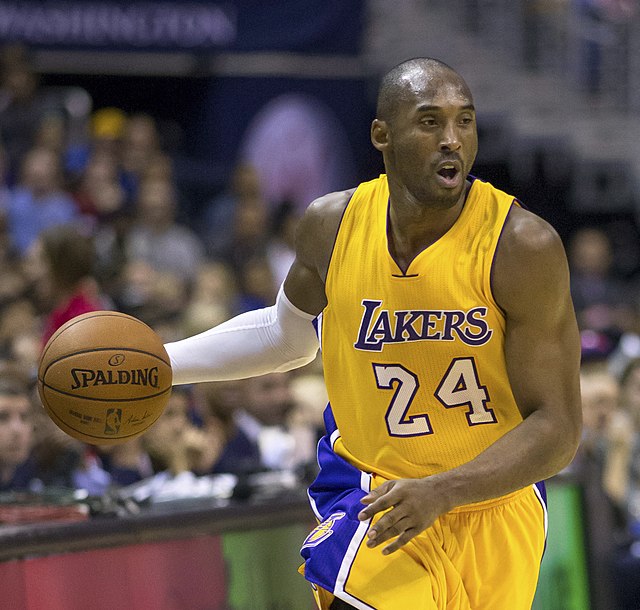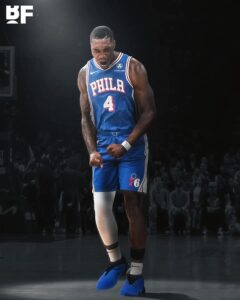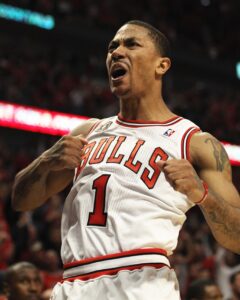
Lakers at Wizards 12/3/14
Kobe Bryant: A Scathing Critique of AAU Basketball’s Impact on College Hoops
When Kobe Bryant, a basketball legend, raised his voice to criticize the Amateur Athletic Union (AAU) system, his words sent shockwaves through the basketball community. Known for his sharp intellect and fierce competitiveness, Bryant’s critique of AAU’s stranglehold on the sport wasn’t just a throwaway comment but a well-thought-out condemnation. He knew, as many basketball purists do, that AAU basketball has severely undermined the integrity and development of young players, and by extension, college basketball itself. Yet, his critique also exposed a darker reality: AAU is ruining college hoops by prioritizing the business of basketball over player development.
The AAU Assembly Line
AAU basketball, once a noble grassroots platform for young athletes to showcase their talents, has devolved into a high-octane marketing machine. Players are whisked through countless tournaments, sometimes playing several games in a weekend, with the sole focus on winning and getting exposure for college scholarships or, more likely, NBA scouts. As Kobe Bryant once said, the “AAU teaches players the wrong things.”
The AAU system isn’t about mastering fundamentals, honing skills, or nurturing basketball IQ. Instead, it has become an assembly line that churns out highlight reels, rewarding players for flashy dunks, half-hearted defense, and individual accolades. College coaches, increasingly reliant on AAU circuits to scout players, find themselves caught in a cycle where athletes come in unprepared, entitled, and ill-equipped for the rigors of disciplined team basketball.
Dismantling College Basketball
The damage AAU basketball has done to college hoops cannot be overstated. Top prospects, often hailed as saviors of struggling programs, arrive on campus with a resume built on fast-paced, low-IQ basketball. Many elite recruits have spent years perfecting their Instagram-worthy plays but lack the fundamentals: sound footwork, defensive positioning, or the ability to adapt to structured offenses.
College basketball suffers because coaches, instead of recruiting polished athletes ready to fit into a team system, are forced to spend time retraining AAU graduates. Take a look at Duke, Kentucky, or Kansas in recent years. Their rosters are filled with former five-star recruits, many of whom leave after a year, hardly fulfilling the promise they carried out of high school. The result is a product on the court that, while still entertaining at times, is increasingly disjointed, with turnovers, broken plays, and inconsistent performances plaguing the game.
The college game is supposed to be about development, about preparing athletes for both life and basketball at the next level. But in the modern era, where one-and-done players rule the roost, this has been all but lost. AAU, in its race to build stars, has left these athletes bereft of the foundational skills needed to succeed in a truly competitive and intellectual basketball environment.
The Erosion of the College Coach’s Power
Kobe Bryant’s critique also brings to light another grim consequence of the AAU system’s influence on college basketball: the erosion of the college coach’s authority. In the AAU world, the power lies with coaches who have little incentive to develop players long-term. Winning a few games in a summer tournament matters far more than teaching a proper defensive stance or working on a player’s post-up game. AAU players often shuffle between teams, following the promise of exposure over the guidance of dedicated coaches.
This mentality bleeds into the college level, where many players, having been coddled and placed on a pedestal throughout their AAU careers, struggle to adapt to the reality of tough coaching. Coaches like Tom Izzo or John Calipari, known for their no-nonsense approach, now face an unprecedented challenge: keeping young stars engaged in systems that require discipline, sacrifice, and selflessness. More often than not, players opt for the quick exit to the NBA draft rather than commit to a coach’s system, depriving college basketball of the veteran leadership that once made the sport so enthralling.
Kobe’s Warning: The NBA Pipeline Trap
While the focus here is on college basketball, Kobe Bryant’s criticism has even more significant implications for the future of the NBA. AAU basketball prioritizes volume and exposure over actual skill refinement, creating a disconnect between what NBA teams need and what AAU-trained players bring. This influx of half-baked talent into college ball waters down the quality of competition, and while some may argue that raw athleticism still shines through, the NBA’s future will be hindered by players lacking the nuanced understanding of basketball’s mental side.
Kobe himself bypassed college basketball, jumping straight from high school to the NBA. Yet, his success came not from an AAU background but from his years spent in Italy, where the European system emphasized fundamentals over flash. In a way, Bryant was the antithesis of the AAU product, and his career stands as a stark reminder that basketball greatness is built on sound fundamentals, hard work, and a deep intellectual understanding of the game.
Today, with the rise of G-League pathways, international prospects, and NBA scouts looking more globally for talent, it is becoming clear that AAU is no longer the best route to basketball greatness. Kobe’s message was simple: AAU, in its current form, is holding back players. And by extension, it is holding back college basketball too.
Conclusion: Time for Reform
Bryant’s scathing critique of AAU basketball was both timely and necessary. His words should serve as a wake-up call to the basketball community. AAU basketball may dominate the landscape for young athletes, but the cost is too high—college basketball is becoming a shell of its former self, marred by underdeveloped talent, incoherent team play, and the erosion of coaching authority.
If college basketball is to reclaim its prestige, there must be a reckoning with the AAU system. The sport must shift back to emphasizing fundamentals, teamwork, and discipline, or else risk becoming a feeder system that produces talented athletes but hollow teams. Kobe Bryant, one of the greatest to ever play the game, saw through the glamour of AAU and recognized its toxic effects. It’s time for college basketball to take his critique seriously—before it’s too late.






